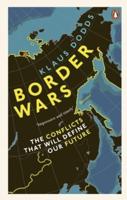Publisher's Synopsis
As the government of Georgia continues its quest for modernization, and as it aspires to join the North Atlantic Treaty Organization and the European Union, it must first normalize relations with the Russian Federation before it can achieve these long-term goals. The nation must consider a patient short and medium-term policy of non-alignment versus an aggressive policy of immediate Western integration. This will be the most effective path for Georgia to improve the lives of its citizens, while ensuring physical security along its borders, which is arguably tenuous. The animosity between the Russian and Georgian governments is counter-productive for both nations. There are several steps that Georgia can initiate with hopes of thawing their relations: De-emphasize the North Caucasus in Georgian politics; Positively promote the 2014 Sochi Olympics; Assuage Russian anxieties about NATO expansion and loss of national prestige; Reduce the overt anti-Russian rhetoric in public statements, official documents, and parliamentary actions; Contribute to Russian energy security and border stability for economic purposes; and, Lower the priority of solving the Abkhazia and South Ossetia independence before engaging Russia. Georgia does not have to become a 'cheerleader' for Russia, but they do need to have a functional relationship with their Northern neighbor if they are to achieve their full potential.









